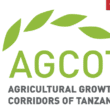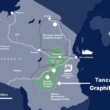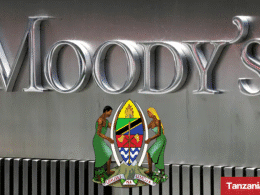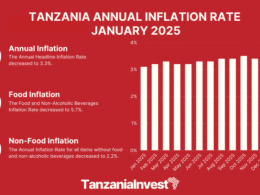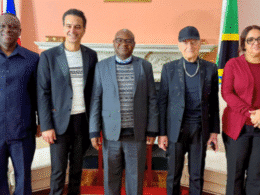TanzaniaInvest had the pleasure of interviewing Clifford Tandari, Chief Executive until May 2017 of the Tanzania Investment Centre (TIC), the primary agency of the Government to coordinate, encourage, promote and facilitate investment in Tanzania.
Mr Tandari highlights the most interesting sectors in which to invest and the benefits of doing so via TIC.
TanzaniaInvest (TI): Many developing countries are competing to attract Foreign Direct Investments (FDI), key to their further development. What makes Tanzania particularly attractive to investors?
Clifford Tandari (CT): Tanzania is a growth pole, one of the few growth poles in the world, and Tanzania has been growing consistently for the last fifteen years, with a GDP of 7% and above.
Natural resources and touristic attractions abound in Tanzania.
Tanzania is also a gateway to the East African Community, with five other member states, and to fifteen other member states within the SADC region.
In addition, Tanzania is very peaceful. We have a democratic government, and we are party to the international treaties.
So, anyone who invests in Tanzania stands to benefit a lot and to recoup their investment very rapidly.
TI: What are most interesting sectors of the Tanzanian economy investment purposes?
CT: We are currently focused on promoting investments in manufacturing, agriculture—where the majority of Tanzanians are involved – real estate, construction, infrastructure, tourism, and hospitality.
TI: And why invest via TIC? What are the incentives in place?
CT: There are several fiscal and non-fiscal incentives available to investors interested in Tanzania.
Fiscal incentives include tax exemptions on capital goods.
When investors bring in capital goods, they are exempted from some taxes since they form an input into the production of the investment undertaken in Tanzania.
Non-fiscal incentives relate to immigration visas and residency permits.
In addition, investments in Tanzania via TIC are guaranteed against nationalisation and expropriation.
Tanzania is a member of both the International Centre for the Settlement of Investment Disputes and Multilateral Investment Guarantee Agency (MIGA).
These incentives are available to investors who apply for a Certificate of Incentives at TIC.
In fact, the TIC acts as a one-stop centre, for investors to streamline the entire investment process through TIC.
For example, investors can also take care of their company registration and business licensing at TIC.
TI: How are you ensuring that foreign investors are aware of the investment opportunities available and of TIC?
CT: One of the measures that we are employing is conducting business-to-business investment forums.
We recently held the Tanzania-India business forum and the Tanzania-Poland business-to-business forum to promote FDI from these countries.
We also have a comprehensive website with regulations, guidelines and procedures, and where we are unable to reach, we advertise using companies like TanzaniaInvest.com.
So, we are promoting, as well as facilitating, and these are the measures that we are currently undertaking.
TI: What would be your piece of advice to investors having decided to come to Tanzania?
CT: I would advise incoming investors to come and register their companies within TIC, so that they are recognized.
In this way, we are able to monitor and build an alliance with them so that if there are any challenges, TIC is there to support and help them.
TIC acts as a bridge between the investors and the government, and so, it’s very beneficial for them to pass through TIC.
TI: You were appointed Executive Director of TIC recently. Under you leadership, what do you want TIC to achieve?
CT: First of all, I would like to see TIC doubling the amount of investment that we are receiving per year.
We are currently receiving about USD2.1bn in FDI per year, and I would see TIC doubling this amount within a short timeframe.
For instance, reaching USD4bn to USD5bn per year would be a vision that I would envisage for.
Then, I would like to see job creation for the youth in this country and I would like to see TIC contributing positively to the industrialization agenda.
Industrial development is at the core of our 2025 Vision to become a middle-income economy, of the National Five Year Development Plan 2016/17-2020/21, and of the National Budget 2016-17.
So, I would like to see TIC being on the forefront of implementing this industrialization agenda.
TI: And where do you see Tanzania within the next ten years?
CT: I would like to see Tanzania being an industrial country and a middle-income economy by 2025.
I would like to see poverty being reduced in Tanzania, and young people getting jobs through the industries coming up.
I would like to see Tanzania as a country where its citizens contribute positively to the growth of the economy.
I would also like to see Tanzania with sufficient and adequate infrastructure for transport to decongest our cities, for rural-urban linkages strengthened so that goods from the rural areas could arrive at urban centers, and then, products from the cities and urban areas would reach the rural areas.
TI: Anything else that you would like to add, Mr Tandari?
CT: I appreciate your coming, and I would like to cooperate very closely with TanzaniaInvest in promoting, across the globe, the opportunities available in Tanzania.
So, we welcome TanzaniaInvest to come and work closely with us so that we can attain the industrialization goals and objectives that have been clearly stated in our blueprints.


